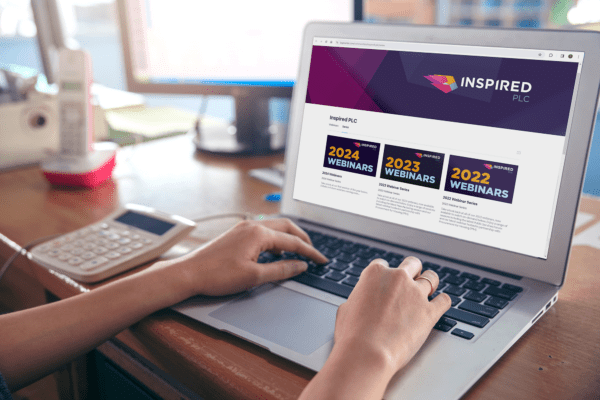
How can businesses make the most of their compliance obligations?
The time and cost involved in energy compliance schemes like the Energy Savings Opportunity Scheme (ESOS) and Streamlined Energy and Carbon Reporting (SECR) can result in many organisations seeing them as a burden – but could compliance create opportunities for businesses to cut both costs and carbon? At Inspired Energy, we’re encouraging businesses to see […]
The time and cost involved in energy compliance schemes like the Energy Savings Opportunity Scheme (ESOS) and Streamlined Energy and Carbon Reporting (SECR) can result in many organisations seeing them as a burden – but could compliance create opportunities for businesses to cut both costs and carbon?
At Inspired Energy, we’re encouraging businesses to see energy compliance as an investment in their future, rather than an expenditure. So, if your business’s only goal is compliance when it comes to schemes such as ESOS and SECR, then it is likely to be a cost. However, if you see them as an opportunity to improve your energy efficiency, you could deliver substantial savings for your organisation.
Deriving value from SECR
In April 2019, the reporting element of the CRC scheme was replaced by SECR, which means that around 11,900 businesses will be complying with SECR for the first time in the next 12 months.
While the level of reporting required will depend on the nature of your business, if your organisation is eligible for SECR you will at least have to report your UK-wide annual energy consumption (including transport & fuels) and greenhouse gas (GHG) emissions, along with any energy efficiency actions you’ve undertaken within your reporting year.
This will require you to gather data on your organisation’s energy consumption throughout the year, which presents a real opportunity for you to get to grips with your energy usage. Reviewing this data will enable you to gain a clear picture of your business’s typical energy consumption, so you can identify abnormal energy use and resolve any issues that may be causing it quickly.
Having a clear picture of your energy usage is also the first step in creating a well-informed energy management plan. If you have multiple sites, for example, you can compare consumption data for each site and if one is using significantly more energy than the others, you can make that site your first priority for implementation of energy efficiency measures.
Making the most of ESOS
There are areas of overlap for businesses affected by both ESOS and SECR, including the requirement to gather energy data. However, to comply with ESOS you will also need to identify potential energy saving opportunities within your organisation, and this is where you have the chance to make some real savings.
While many businesses will simply compile a list of energy savings recommendations for their organisation and submit their audit, savvy energy managers will take action on the opportunities identified within ESOS audits.
ESOS guidelines state that energy saving recommendations should be reasonably practicable, cost effective to implement and cost-effectiveness must be assessed by comparing the reduction in units of energy or energy spend with the cost of implementing the measure. This should make it relatively straightforward for you to build the business case for adopting your efficiency recommendations.
Businesses aren’t required to implement their recommendations in order to comply with ESOS, but you could be missing out on opportunities to reduce your consumption and your energy bills if you don’t act on your unique recommendations. It makes sense to use any means possible in order to mitigate the costs of becoming compliant as well as forward increases in non-commodity charges. In Phase 1, we identified savings of over £14m for our clients!
The clock is ticking
It’s important to remember that you must be compliant with ESOS Phase 2 in time for the deadline (5th December 2019). If you miss the deadline then you will face financial penalties that could easily outweigh any potential savings with fixed & recurring financial penalties easily exceeding £50,000. So, if you haven’t started your ESOS Phase 2 compliance yet, you need to act now to make sure your audit is completed in a timely manner.
Inspired Energy has extensive experience in helping businesses to comply with government schemes such as ESOS and SECR, with a proven track record in delivering for our clients – in fact, we’ve achieved 100% compliance for all the customers we’ve supported with external audits which is testament to the expertise and knowledge of our in-house ESOS Lead Assessors
To find out more about how we can help you to make the most of your compliance obligations, call us today on 01772 689 250.










